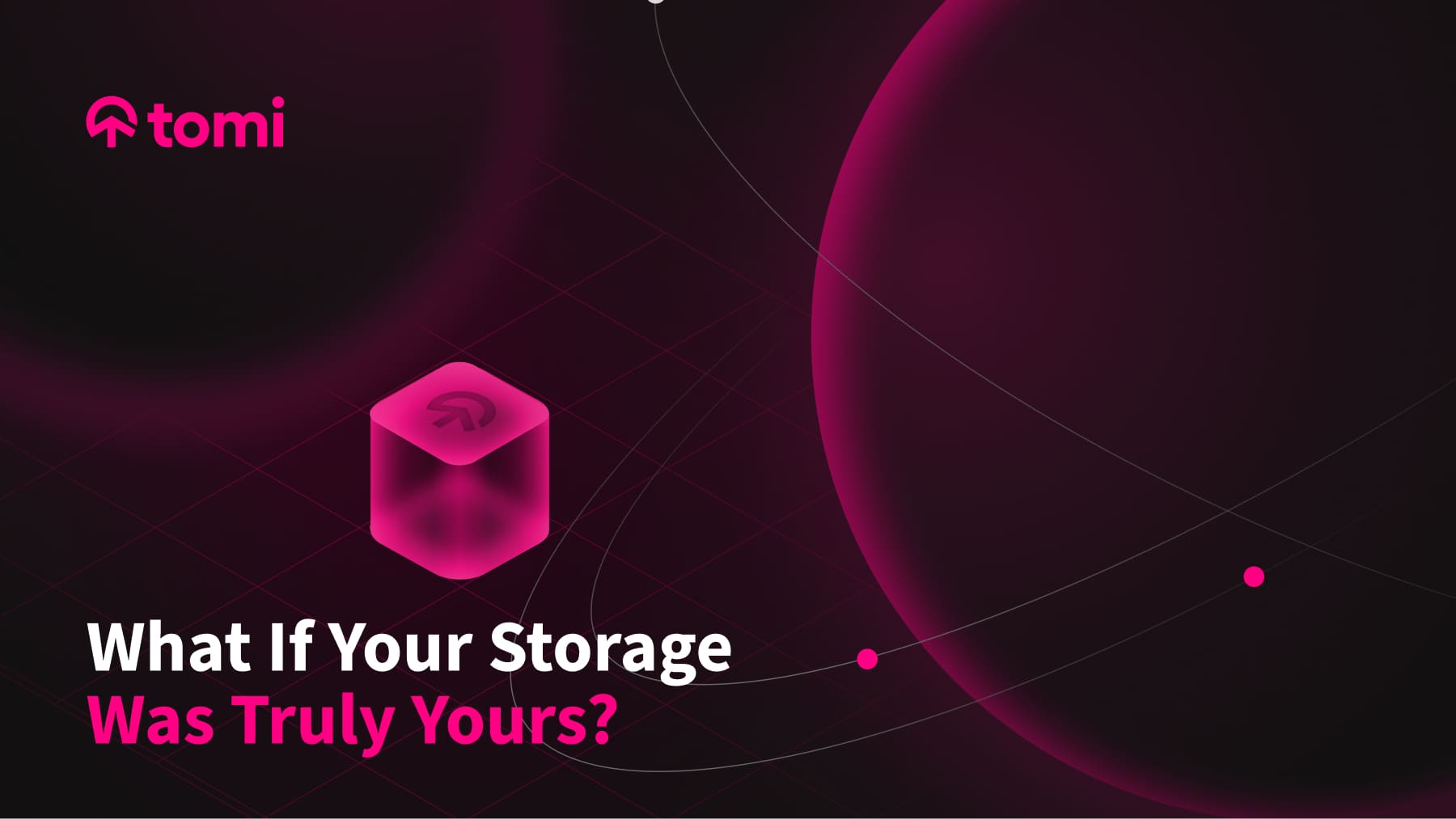
Tokenomics, DeFi, and Unpacking the Challenges of the Blockchain: An Interview with Eloisa Marchesoni
- Rudolph Harmon
- August 9, 2024
- interview
- 0 Comments
Eloisa Marchesoni, a seasoned expert in tokenomics and blockchain strategy, shares her insights on the evolving landscape of the industry.
In this exclusive interview, explore how advancements in scalability are shaping project development, the potential of decentralized finance (DeFi) to revolutionize financial systems, and the unique dynamics of blockchain adoption in emerging markets. Additionally, we discuss critical security considerations for smart contracts, the role of tokenomics in project success, and the importance of regulatory compliance.
Marchesoni also shares her insights on the convergence of blockchain with other emerging technologies like AI and IoT, as well as the potential of blockchain to transform supply chain management.
Join us as we explore the future of blockchain through the lens of this industry veteran.
- How have advancements in blockchain scalability influenced your approach to project evaluation and development? Can you share any specific technologies or solutions that have impacted your strategies?
No particular impacts, as tokenomics is based on a scientific approach (derived from engineering, actually) and its base structure has never changed since inception. I can say that there is indeed a growing demand for evermore complex systems which requires us consultants to constantly stay up to date with new trends and ask ourselves how we can break that complexity down into base elements that we can apply our tested models to.
- What role do you believe decentralized finance (DeFi) will play in reshaping traditional financial systems, and how can startups position themselves to take advantage of these changes?
The decentralization of finance will slowly transform today’s monolithic and highly concentrated traditional financial systems into vast ecosystems made up of smaller vertical companies working together systemically to guarantee the best service to the people. That means that there are more chances of success for those startups that will be able to bring the most specific and unique offers to the table, because the times of all-encompassing banks, capital management firms and payment providers are passing.
- In your experience, how does the integration of blockchain technology in emerging markets differ from its application in developed economies? What unique opportunities or challenges do these markets present?
In emerging markets, startups often view blockchain as a potential path to overcoming challenges and achieving economic growth, while the institutions try to limit that because most governments in developing countries tend to prefer having full control over their people, including their chances to “get rich”. Moreover, the institutions could not care less for the concrete and systematic application of new technologies, as relying “on paper” is in their best interest to preserve the status quo. At the same time, these same institutions usually want to favor foreign entrepreneurs wanting to establish companies and invest capital in their countries, most of the time accepting money in return for more flexibility.
So, there is a paradoxical situation for which wealthy foreigners tend to prefer developing countries to establish their blockchain-based businesses while the locals are bound to ever only be employed by them at a much lower salary than what the same role would cost elsewhere.
- What are the most critical factors for ensuring the security and integrity of smart contracts? Can you share any best practices or common pitfalls that projects should avoid?
To ensure comprehensive protection when addressing smart contract security, it is important to check the security of the entire application ecosystem. Each smart contract is usually part of a larger set of contracts that interact with each other within the ecosystem, which may also involve off-chain nodes, gateways, wallets, and user interfaces. Attackers often exploit vulnerabilities in the broader ecosystem, rather than focusing solely on smart contracts. Thus, considering the entire application ecosystem is important. Moreover, smart contract code should be written so it can be paused at single points of failure, and a precise upgrade path for bug fixes should be established before launch. To ensure security, project founders should carefully choose an auditor and at the same time make use of bug bounties, which crowdsource the security audit process.
- How do you foresee the evolution of tokenomics models impacting the sustainability and success of blockchain projects? What innovative tokenomic structures do you find promising?
While I don’t believe there are specific tokenomics models that ensure sustainability and success, apart from general best practices, I do believe there are certain tokenomics techniques that can be implemented in order to achieve a healthy ecosystem. In particular, I always encourage founders to put budget aside not only for the tokenomics discovery and design but also for the audit and simulations, which help identify improvement areas and potential misalignments.
In particular, a new kind of simulation that leverages digital twins is highly effective but still underrated. A digital copy of the protocol is created for detailed stress-testing across optimistic, realistic, and pessimistic scenarios. This process allows us to evaluate how the protocol will perform under different conditions, identifying vulnerabilities and risk mitigation strategies to ensure its resilience and effectiveness in the market.
- Given the increasing scrutiny of cryptocurrencies from regulatory bodies, what proactive measures can blockchain projects take to ensure compliance and build trust with both users and regulators?
A prudent strategy would be to build a holding structure consisting of different sub-entities, each covering a specific element of the planned ecosystem and each established in the country that has the most friendly laws regarding its particular function. Of course, all of this should be done under the supervision of a law firm with good experience in blockchain and crypto.
- Can you discuss any recent trends in blockchain-based asset management or investment platforms that you find particularly exciting or disruptive? How do these trends align with the future of personal finance?
After the pandemic, the need for a passive income has become more and more important for everyone, not anymore being seen as just a privilege for the wealthy. That is when the masses started to embrace crypto and also to look for ways of blending it with traditional finance, in order to gain access to opportunities that they wouldn’t normally have. RWA tokenization is a great example of that, allowing for fractional ownership, increased liquidity, and more efficient management and trading of real-world assets. Another example is crypto lending, which still needs to see better days, as so far implementation has been poorly done when not absolutely a failure.
- What are some effective strategies for educating non-technical audiences about the benefits and risks of blockchain technology? How can blockchain advocates communicate complex concepts in a more accessible way?
I strongly believe the main issue so far has been misinformation, distributed by both the media and so-called influencers on social media. We do not need more advocates to simplify concepts, because blockchain and crypto are inherently intricate.
Anyone that tries to over-simplify is most likely just a scammer trying to lure the audience into some sort of Ponzi scheme. What we do need is first of all a shift in values within the blockchain and crypto world, where success should not be measured by levels of wealth and luxury but rather by levels of achievement and recognition, highlighting such new values in the numerous events taking place around the world, and finally reflecting the same on social media. Right now there is a lack of serious and relatable experts out there, and oftentimes the media do not help to shine the light on the right people. The masses must appreciate the complexity of blockchain in order to control it (and control their own lives, as that is the whole purpose of this technology), and not be treated as if they could never understand it.
- How do you evaluate the long-term potential of projects that combine blockchain technology with other emerging technologies, such as AI or IoT? What synergies do you find most promising?
Honestly, as per today, there are no applications of such technologies combined that I consider successful or even promising. The problem there is that blockchain technology itself still needs to be taken seriously and to find its specific applications. For now, apart from Bitcoin, all that there is out there as a blockchain application is more or less experimental and mostly speculative. AI has surpassed blockchain by far in terms of widespread real-world applications, mostly aided by the big tech companies that have been promoting it and, most importantly, lobbying for it. Blockchain is still seems as a cypher-punk phenomenon. What I can say that I am enthusiastic about are the AI applications to tokenomics, which in turn is the foundation of most blockchain-based projects.
- What is your perspective on the use of blockchain for creating transparent and accountable supply chains? Can you provide examples of projects or initiatives that have successfully implemented this technology?
Smart contracts are a blockchain application that has the potential to enhance and transform many parts of a supply chain by eliminating intermediaries, more effective transactions, reducing costs, anti-tampering, transparency, etc. However, such potential will be very limited if smart contracts cannot access real-world, off-chain data. So-called oracles are utilized to connect the blockchain to off-chain data sources, but data sources such as IoT sensors or web APIs are often centralized entities that are relatively easy to attack, thus opening up the blockchain to single points of failure.
This is known as the oracle problem, erasing the benefits of adopting blockchain technology in the first place, and it needs to be addressed before mass adoption within supply chains can take place. Chainlink has been focusing on finding a solution to this exact issue for years, developing a structure that is quite similar to that of a blockchain, where a decentralized network of autonomous oracles gathers data from diverse sources, combines it, and offers a validated, single data point to the smart contract to accelerate its execution, eliminating any single failure point. Chainlink itself is not a logistics-focused project, but it enables supply chains to realize the full benefits of blockchain and IoT technologies by connecting trade systems with each other and to real-world data in a reliable, secure, and decentralized manner.








